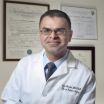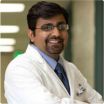Doctors should be required to disclose sleep deprived status to patients before elective surgeries
2010-12-30
(Press-News.org) While regulations have been put in place to restrict the work hours of doctors in training, no such regulations exist for fully trained physicians. An editorial in this week's New England Journal of Medicine argues that sleep-deprived physicians should not be permitted to proceed with an elective surgery without a patient's informed, written consent.
According to the authors, "This approach would represent a fundamental shift in the responsibility patients are asked to assume in making decisions about their own care and might prove burdensome to patients and physicians and damaging to the patient-physician relationship." They further write that "this shift may be necessary until institutions take the responsibility for ensuring that patients rarely face such dilemmas."
Studies have shown that sleep deprivation impairs psychomotor performance as severely as alcohol intoxication. A 2009 study in the Journal of the American Medical Association showed a significant increase in the risk of complications in patients who underwent elective daytime surgical procedures performed by attending surgeons who had less than a six-hour opportunity for sleep during a previous on-call night. Further complicating the matter, people who are sleep-deprived are often not able to accurately assess their degree of self-impairment. Surveys have also revealed that the majority of patients undergoing elective surgery would request a different provider if they knew that their surgeon was sleep deprived.
"Sleep deprivation affects clinical performance. It increases the risks of complications. And it is clear from survey data that patients would want to be informed if their physician was sleep deprived and that most patients would request a different provider," said Michael Nurok, M.D., Ph.D., an anesthesiologist and intensive care physician at Hospital for Special Surgery who is first author of the editorial. "We think that institutions have a responsibility to minimize the chances that patients are going to be cared for by sleep-deprived clinicians."
These days, some hospitals take steps to minimize the likelihood that a surgeon will be scheduled to conduct an elective surgery in a sleep-deprived state. For example, some busy practices prohibit scheduling surgeries for physicians on post-call days. But not enough is being done. "A lot of institutions are not going to be able to take that leap immediately, so as an interim step, we believe that patients need to be informed," Dr. Nurok said. "This is going to be a policy issue that develops. Elective surgery is the low hanging fruit because there is no urgency to doing it and it can be rescheduled – ideally as a priority with institutional support. It's a nice place to start to think about policy approaches."
The editorial argues that sleep-deprived physicians should be required to inform patients of their condition and the potential hazards that can come with this impairment. If patients opt to proceed as planned, they should be required to sign a consent form on the day of the procedure in front of a witness. Patients should be given the opportunity to go ahead with the procedure, proceed with a different physician if possible, or reschedule. The Sleep Research Society and American Academy of Sleep Medicine have argued that legislation is needed to address fatigue.
The editorial authors identify a number of barriers that may make this informed consent and surgery rescheduling unpopular with patients and physicians. Patients may have made logistical provisions for their surgery and may be unhappy if they have to reorganize their schedule again. Clinicians may lose cases to colleagues and thus income. Departments and institutions may lose income if patients reschedule and seek treatment elsewhere.
And while the study authors acknowledge that there may be financial and administrative costs associated with any informed consent plan, they argue that the costs may be offset by improved surgical outcomes and reduced complications.
"There has been widespread discomfort with the idea that patients are having procedures performed by physicians who are fatigued," Dr. Nurok said. "New policies are needed."
INFORMATION:
Dr. Nurok is also a member of the Department of Global Health and Social Medicine at Harvard Medical School.
Co-authors of the study include Charles A. Czeisler, M.D., Ph.D., of the Division of Sleep Medicine at Brigham and Women's Hospital and Division of Sleep Medicine at Harvard Medical School; and Lisa Soleymani Lehmann, M.D., Ph.D., from the Center for Bioethics at Brigham and Women's Hospital and the Division of Medical Ethics at Harvard Medical School.
About Hospital for Special Surgery
Founded in 1863, Hospital for Special Surgery (HSS) is a world leader in orthopedics, rheumatology and rehabilitation. HSS is nationally ranked No. 1 in orthopedics, No. 3 in rheumatology, No. 16 in neurology and No. 18 in geriatrics by U.S.News & World Report (2010-11), and has received Magnet Recognition for Excellence in Nursing Service from the American Nurses Credentialing Center, and has one of the lowest infection rates in the country. From 2007 to 2011, HSS has been a recipient of the HealthGrades Joint Replacement Excellence Award. A member of the NewYork-Presbyterian Healthcare System and an affiliate of Weill Cornell Medical College, HSS provides orthopedic and rheumatologic patient care at NewYork-Presbyterian Hospital at New York Weill Cornell Medical Center. All Hospital for Special Surgery medical staff are on the faculty of Weill Cornell Medical College. The hospital's research division is internationally recognized as a leader in the investigation of musculoskeletal and autoimmune diseases. Hospital for Special Surgery is located in New York City and online at www.hss.edu.
For more information contact:
Phyllis Fisher
212-606-1197
FisherP@hss.edu
Tracy Hickenbottom
212-606-1197
HickenbottomT@hss.edu
ELSE PRESS RELEASES FROM THIS DATE:
2010-12-30
SEATTLE—Many people in the U.S. have multiple common chronic diseases such as diabetes and heart disease, which complicates health care needs. When depression coexists with diabetes, heart disease, or both, health outcomes are often less favorable.
In a randomized controlled trial, testing a primary care intervention called TEAMcare, nurses worked with patients and health teams to manage care for depression and physical disease together, using evidence-based guidelines. The result for patients: less depression, and better control of blood sugar, blood pressure and cholesterol ...
2010-12-30
Investigators at the National Institutes of Health have observed that the survival rate of people with a rare immunodeficiency disease called chronic granulomatous disease (CGD) is greatly improved when even very low levels of microbe-killing molecules are present. Because production of these molecules, made by an enzyme called NADPH oxidase, can be predicted from genetic analysis, a patient's risk for severe CGD could be assessed very early in life, allowing for more personalized treatment, say the researchers.
The study was conducted at the NIH Clinical Center and ...
2010-12-30
Chapel Hill, NC – In a new paper published this week in the Proceedings of the National Academy of Sciences, Aziz Sancar, MD, PhD, the Sarah Graham Kenan Professor of Biochemistry and Biophysics in the UNC School of Medicine, and his colleagues have taken an important step in understanding the underlying molecular signals that influence a broad array of biological processes ranging from the sleep-wake cycle to cancer growth and development.
Scientists who work in this field, known as chronobiology, have identified the genes that direct circadian rhythms in people, mice, ...
2010-12-30
GETTYSBURG, PA – Peach producers have traditionally relied heavily on hand thinning, a necessary but costly and labor-intensive field practice. Impacted by increasing labor costs and a limited workforce, peach and other stone fruit growers are turning to mechanical methods such as string thinners to minimize the need for hand thinning. A new ''hybrid'' string thinner prototype showed promising results when it was evaluated in four U.S. growing regions; the trials resulted in significant labor savings and increased peach size.
According to Pennsylvania State University's ...
2010-12-30
BUDAPEST, HUNGARY – Apricots are important to Turkey, the country where more apricot crops are grown and exported than anywhere in the world. Looking to unlock the mystery of apricots' origins and increase crop production, scientists are studying the genetic relationship between apricot varieties. New research from a team of Hungarian and Turkish scientists has confirmed the genetic link between Turkish and Hungarian apricot cultivars, yielding information that provides valuable data for apricot growers and breeders.
It is widely believed that apricots originated in China, ...
2010-12-30
WEST LAFAYETTE, IN – Traditional turfgrass management programs rely heavily on the use of synthetic pesticides and fertilizers. In response to increased public scrutiny and legislation, organic and biological alternatives are becoming more accepted, but research indicates that these alternatives have not been widely adopted by either homeowners or the lawn care industry. Results of a new study that compared common but disparate turfgrass management approaches may help lawn care professionals to evaluate, market, and implement alternative management programs.
Purdue University ...
2010-12-30
NORWAY – Could a plant "intervention" improve the well-being of patients in a difficult rehab process? Scientists from the Norwegian University of Life Sciences and Sweden's Uppsala University investigated this question in a recent study of 436 coronary and pulmonary patients at a Norwegian rehabilitation center. The results were published in HortScience. Ruth Kjærsti Raanaas, Grete Grindal Patil, and Terry Hartig studied the effects of an indoor plant intervention during a 2-year study conducted at the Røros Rehabilitation Center. The experiment showed that patients' overall ...
2010-12-30
Children who live in areas with fewer pediatricians are more likely to suffer life-threatening ruptures of the appendix than those in areas with more pediatricians, even when accounting for other factors such as the number of hospitals, imaging technology, insurance coverage and the number of surgeons in an area, according to a study from the Johns Hopkins Children's Center.
The study's findings, based on an analysis of nearly 250,000 hospital records of children with appendicitis, are published online in the December issue of JAMA-Archives of Surgery.
"Our analysis ...
2010-12-30
A team of Johns Hopkins Children's Center researchers has discovered that a protein involved in cystic fibrosis (CF) also regulates inflammation and cell death in emphysema and may be responsible for other chronic lung diseases.
The findings, published online in the December issue of The Journal of Immunology, pave the way toward new treatments to prevent lung damage caused by infections or cigarette smoke in emphysema.
The protein, called CFTR (cystic fibrosis transmembrane conductance regulator), is already well known for its role in transporting chloride in and ...
2010-12-30
NEW YORK (Dec. 30, 2010) -- The brain under general anesthesia isn't "asleep" as surgery patients are often told -- it is placed into a state that is a reversible coma, according to three neuroscientists who have published an extensive review of general anesthesia, sleep and coma, in the Dec. 30 issue of the New England Journal of Medicine. This insight and others reported in their review article could eventually lead to new approaches to general anesthesia and improved diagnosis and treatment for sleep abnormalities and emergence from coma.
The researchers explain that ...
LAST 30 PRESS RELEASES:
[Press-News.org] Doctors should be required to disclose sleep deprived status to patients before elective surgeries





